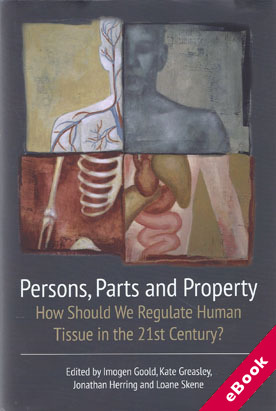
The device(s) you use to access the eBook content must be authorized with an Adobe ID before you download the product otherwise it will fail to register correctly.
For further information see https://www.wildy.com/ebook-formats
Once the order is confirmed an automated e-mail will be sent to you to allow you to download the eBook.
All eBooks are supplied firm sale and cannot be returned. If you believe there is a fault with your eBook then contact us on ebooks@wildy.com and we will help in resolving the issue. This does not affect your statutory rights.
The debate over whether human bodies and their parts should be governed by the laws of property has accelerated with the pace of technological change.
The common law first recognised that there could be a property interest in human tissue in some circumstances in the early 1900s, but it was not until a string of judicial decisions and statutory regulation in the 1990s and early 2000s that the place of this 'exception' was cemented.
The 2009 decision of the Court of Appeal of England and Wales in Yearworth & Ors v North Bristol NHS Trust added a new dimension to the debate by supporting a move towards a broader, more principled basis for finding (or rejecting) property rights in human tissue. However, the law relating to property of human bodies and their parts remains highly contested.
The contributions in this volume represent a collation of the broad spectrum of analyses on offer, and a detailed exploration of the salient legal and theoretical puzzles arising out of the body-as-property question.